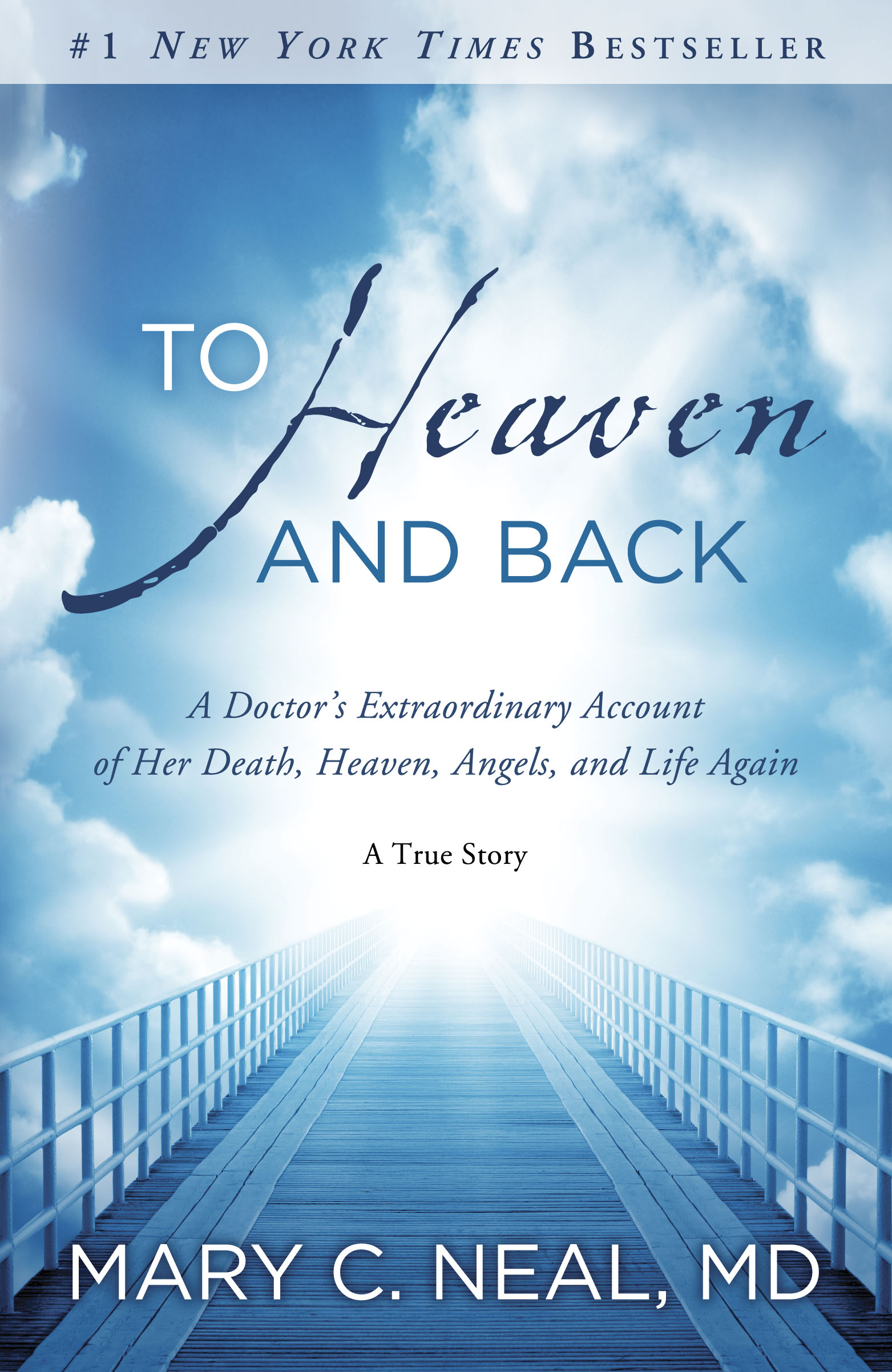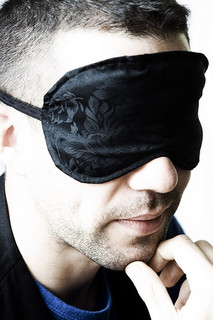![]()
By Randy Alcorn
Eternal Perspectives Ministries, Sandy Oregon
Author of Heaven
 In the previous blog I expressed concerns about some doctrines in the new bestselling book To Heaven and Back, by Mary Neal. This is my second and last article on this subject. It’s lengthy, but I think it’s important and I don’t want to drag it out with several shorter articles.
In the previous blog I expressed concerns about some doctrines in the new bestselling book To Heaven and Back, by Mary Neal. This is my second and last article on this subject. It’s lengthy, but I think it’s important and I don’t want to drag it out with several shorter articles.
I have a good relationship with the publisher of this book, and asked them to review my blog draft, offering to consider any corrections or points of explanation or disagreement they had. Their letter was thoughtful and gracious. Though they naturally disagreed with me on some points, they were not defensive about my criticisms. Below, highlighted and in bold, are quotes from their letter (used with their permission). The portions not in bold are my responses.
You know our hearts well—that as a company we are committed to the Kingdom, strive to publish within Christian orthodoxy, and have a deep desire to bring people closer to God through Jesus Christ.
I agree. These are good, Bible-believing brothers and sisters laboring to exalt Christ among His people and bring Him to the world.
We would simply say that To Heaven and Back is not a book of theology. It is a true story of a woman who had a remarkable experience of a supernatural God, a life changing event that brought her into a real relationship with Jesus Christ. Why wouldn’t we all praise God for that?
 I must respectfully disagree that this is “not a book of theology.” True, the book is not a theological treatise. It is not formal theology and is mostly a personal account. But a book that claims someone visited Heaven and recounts conversations with Christ and/or angels and shares with readers what the author learned in Heaven, from God, is certainly a book of theology. The theology may be good or bad, but it is in fact “theology” (which literally means, “words about God”).
I must respectfully disagree that this is “not a book of theology.” True, the book is not a theological treatise. It is not formal theology and is mostly a personal account. But a book that claims someone visited Heaven and recounts conversations with Christ and/or angels and shares with readers what the author learned in Heaven, from God, is certainly a book of theology. The theology may be good or bad, but it is in fact “theology” (which literally means, “words about God”).
I hear with increasing frequency the “but it isn’t theology” defense. When I met with the author of The Shack and pointed out a dozen places in the book that contradict Scripture, he assured me, “This isn’t a theology book, it’s just a novel.” But the book was full of theology and has shaped the theological convictions of countless readers. In fact, when the book was picked up by a Christian publisher and released at a booksellers’ convention I attended, a huge promotional sign visible a hundred feet away asked, “What is God like?” The answer—so they said—was found in The Shack.
But even if they don’t think a book is theological, Christian authors and publishers should still seek to be biblically accurate, shouldn’t they? If Mary Neal (or anyone else) claims much of her book content came from Heaven, shouldn’t her memory of what she saw and heard be subject to the authority of Scripture? If a book is “life changing”—which is the sort of book everyone wants to write and publish and read—shouldn’t it change lives while being faithful to Scripture?
I agree we should all praise God for people coming to Christ. But Jesus prayed to the Father, “Sanctify them in the truth; your word is truth” (John 17:3). He did not say “their experience, even the parts of it that contradict your Word, is truth.” So can’t we praise God for people coming to Christ and praise God when what they write honors God’s Word and recognizes its authority over our words and memories?
Orthodox Christianity is fundamentally based on a belief in the supernatural—specifically that God exists beyond the natural order, that He is sovereign over the nature he created. We’re sure you agree with this. Yet much evangelicalism has marginalized its own belief in a supernatural faith—in so many ways it has substituted natural, “logical” explanations for God’s work in daily life—“God doesn’t work that way now,” so it goes. Is this not a serious theological deficiency? It effectively denies God’s sovereignty, his ability to enter into the natural order and do supernatural things. We believe that also deadens many people’s experience of God. This is a significant crossroads evangelicalism is facing today.
Mary Neal’s experience of death and heaven confronts that head on. Here, a person of science and logic—a credible narrator– is thrust into the supernatural realm and returns transformed, on fire for a God she once only casually nodded to and considered distant and theoretical. Isn’t this the crux of it—as a Christian do you really believe your God is supernatural?
It seems to us that’s a significant, challenging, radical question most worthy to be published.
I agree emphatically with my publisher friends that far too many Bible believers are in effect anti-supernatural. Some Christians argue against the miraculous with the same scorn of atheists and agnostics. The irony is stunning, since the Christian faith is rooted in the miraculous and dependent upon it. I believe absolutely that God does miracles today. I am completely convinced, for instance, that for decades the Lord Jesus has been appearing to Muslims in dreams and visions, bringing many people to faith. The evidence is clear, repeated and consistent.
 So, the reason I believe that the teachings of certain dreams, visions and personal experiences with God are not true is not that they are miraculous. It is that they contradict the inspired Word of God. “All Scripture is breathed out by God and profitable for teaching, for reproof, for correction, and for training in righteousness.” (2 Timothy 3:16). Some claims fail the test of Acts 17:11, which says the Bereans, “examined the Scriptures every day to see if what Paul said was true.”
So, the reason I believe that the teachings of certain dreams, visions and personal experiences with God are not true is not that they are miraculous. It is that they contradict the inspired Word of God. “All Scripture is breathed out by God and profitable for teaching, for reproof, for correction, and for training in righteousness.” (2 Timothy 3:16). Some claims fail the test of Acts 17:11, which says the Bereans, “examined the Scriptures every day to see if what Paul said was true.”
Now suppose I heard that a Muslim had a dream in which Jesus Christ said that Mohammed was a true prophet of God and that Islam is the true faith. Here are my belief options:
1) The dream is true, and Jesus really said that. But this conflicts with Scripture—not because it is miraculous, but because Jesus and Mohammed made some contradictory claims.
2) The dream really happened but it was not Jesus speaking. Maybe it was just a dream influenced by someone’s pre-existing belief system, power of suggestion and/or by medications or even indigestion.
3) The dream really happened and it was indeed supernatural, but it wasn’t Jesus speaking: “even Satan disguises himself as an angel of light” (2 Corinthians 11:14).
When there is demonic deception, the human being—sincere or not—can become a false prophet: “But false prophets also arose among the people, just as there will also be false teachers among you, who will secretly introduce destructive heresies…” (2 Peter 2:1)
I totally agree with the publisher that as Christians we should affirm God’s miracles. This does not mean 1) we should believe that everything claimed to be a miracle really is one, or 2) even when we do believe it was a miracle, we should assume everything remembered and said by the person is entirely accurate.
Someone can believe Mary Neal did not go to Heaven. Someone else can believe that she really did, but that her memories of what was said to her in Heaven are—like all memories—fallible, and subject to correction by Scripture. Both viewpoints allow us to affirm the sufficiency of Scripture. We do not require further revelation (as if God’s Word were not enough), but when someone claims to be bringing it, we evaluate it by Scripture, which remains our authority.
I think it’s also fair to ask whether we believe that the supernatural God has supernaturally revealed Himself and important truths to us in the Bible. And whether, when there is a conflict, that supernatural revelation trumps supernatural experiences.
We think the appeal [of all the to heaven and back books] is that these are people’s real-life experiences, today.
I agree that’s the appeal. Much is said today about the importance of everyone’s story. But God has given us an inspired redemptive story, containing many propositional truths, by which we can evaluate the parts of our own story (including not only our experiences but our thinking) that are to be trusted, and those that should not be. It is a fundamental belief of historic Christianity that our personal experiences, valuable as they may be, are never on a footing with the God-breathed story.
Not all things said to be real-life experiences or sincerely thought to be real-life experiences actually are real-life experiences. And even when they are real and supernatural, the take-away from these experiences is subject to flawed human understanding and memory.
 Every police officer, attorney and judge knows that five people who witness a car accident or robbery will often have three to five contradictory stories. None are lying. They sincerely believe what they’re saying. It’s not just that they forget what happened; it’s that they remember things that did not happen.
Every police officer, attorney and judge knows that five people who witness a car accident or robbery will often have three to five contradictory stories. None are lying. They sincerely believe what they’re saying. It’s not just that they forget what happened; it’s that they remember things that did not happen.
People in extreme trauma are in a substantially more vulnerable and subjective position than unharmed witnesses. Traumatized people often have faulty memories of what happened to them. Their relatives have to gently correct them about what really transpired. Strong medications are routinely administered to the severely traumatized and many of us know what it’s like to have altered perceptions due to this. (As an insulin dependent diabetic, my vivid memories of what happened during an insulin reaction can be very inaccurate, even after I am perfectly fine).
Does dying or nearly dying qualify as extreme trauma? I’m no expert, but I think it does! Frequently, not only are strong medications involved, but also life-saving actions such as CPR and powerful electric bursts from the paddles of a heart defibrillator. It stands to reason that these extreme measures might cause a swirl of unconscious imagery. If someone were in Heaven during this brief period of bodily distress, would it be easy later to separate trauma-induced brain imagery from one’s memories?
I am not saying miracles don’t ever happen to traumatized people. In fact they’re likely to happen more often, given their desperate need. I’m simply saying, those at an accident scene or hospital room will often testify that not everything severely traumatized people remember really did happen. And even what did happen may not have happened as remembered. So is it possible some memories a person has of being in another world, and what they heard there, could also be fallible?
If you disagree, as a Christian, what do you do with all the after-death experience memories of unbelievers whose accounts contradict the words of Jesus, advocating such things as salvation by good works, universalism, reincarnation, and other unbiblical ideas?
Theologians may find theological statements compelling, but many more people encounter truth about God (theology) through their own daily experiences and those of others. People are hungry for a faith that is truly extra-ordinary. And too many evangelicals don’t have that. Going to church, getting all the theological points right, reading Christian books—all good—but it leaves many wishing for a faith more vibrant than simply a religion of what’s on a page and in a pew.
My first response is to say let’s not underestimate the power of God’s Holy Spirit working through His Word to change lives, which should not be stereotyped as “getting all the theological points right.” The illuminating ministry of the Holy Spirit in teaching us as we meditate on His Word is itself miraculous and life-giving (1 John 2:27).
Nonetheless, I certainly understand and identify with this observation. It reminds me of how disillusioned I was as a young Christian when the signs and wonders I read of in the Gospels and Acts didn’t happen in my church. I went to Kathryn Kuhlman healing crusades, and I watched Filipino Christian “psychic healers” supposedly remove tumors from bodies with their bare hands. I went forward to receive the baptism of the Holy Spirit at a church service conducted by Marjoe Gortner. I prayed repeatedly for supernatural gifts and experiences, including healings. I certainly wanted what by God’s grace I still have: “a faith more vibrant than simply a religion of what’s on a page and in a pew.”
 But in the process, as an excited but confused young believer, I also failed to exercise biblical discernment. I trusted things to be miraculous that weren’t. (Marjoe Gortner turned out to be a fake, and so, I believe, were the psychic healers.) Today I believe in a God of miracles and I also believe we should weigh people’s claims to supernatural experiences in light of Scripture. Of all people, Christ-followers should believe in miracles, but not in every claim to the miraculous. This isn’t a contradiction. Neither is it dead orthodoxy. Rather, it is spiritual discernment, and submission to the sound doctrine advocated by the apostles who saw God’s Word and supernatural work distorted and misrepresented:
But in the process, as an excited but confused young believer, I also failed to exercise biblical discernment. I trusted things to be miraculous that weren’t. (Marjoe Gortner turned out to be a fake, and so, I believe, were the psychic healers.) Today I believe in a God of miracles and I also believe we should weigh people’s claims to supernatural experiences in light of Scripture. Of all people, Christ-followers should believe in miracles, but not in every claim to the miraculous. This isn’t a contradiction. Neither is it dead orthodoxy. Rather, it is spiritual discernment, and submission to the sound doctrine advocated by the apostles who saw God’s Word and supernatural work distorted and misrepresented:
Beloved, do not believe every spirit, but test the spirits to see whether they are from God, for many false prophets have gone out into the world. (1 John 4:1)
O Timothy, guard the deposit entrusted to you. Avoid the irreverent babble and contradictions of what is falsely called “knowledge,” for by professing it some have swerved from the faith. (1 Timothy 6:20-21)
Why wouldn’t we as a company publish a book like this which brings readers face to face with the reality of a supernatural God, the truth of heaven, and the promise of everlasting life?
My answer is: there would be no good reason, unless there were a character and integrity issue with the author, which I do not believe, or if there were teachings in the book which contradict God’s Word, which I do believe. The other option would be to work with authors and provide–even require–good theological editing so that they (and by extension their publisher) do not advocate false doctrine.
Mary Neal is not Mormon, and in fact is actively involved in a Reformed church.
I did not suggest Mary Neal was a Mormon, I only pointed out what is an objective fact—that she holds to a distinctly Mormon doctrine of the pre-existence of human souls in Heaven. Furthermore, she writes of an LDS bishop uttering a prophetic word over what she called a “spiritually devoted” Mormon patient who had an after-death experience she appears to believe was real and valid. And Neal’s words closely parallel those of Mormon Betty Eadie who advocated the same doctrine of preexistence in Embraced by the Light.
Respectfully, I think it would be good for her Reformed pastors and members of her church body to discuss with her the biblical teaching on when and where life begins, and the sin nature, and the fact that we come into being alienated from God, not first having been in right relationship with God in Heaven. (See the Scriptures on this in my previous blog.) Hopefully her friends and church leaders are already doing this, and can help her understand that the real human problem is not amnesia about our wonderful relationship with God before coming to earth, but that prior to our conversions we’ve never had a relationship with God. By the empowerment of God’s Sprit, people need to turn from their sins and bow their knees to the Christ they’ve never before known so that they may one day enter the Heaven they’ve never before lived in.
Someone who read in the previous blog my biblical arguments against pre-existence in Heaven asked how I understand Jeremiah 1:5: “Before I formed you in the womb, I knew you.” My answer: God is omniscient and eternal; He knows everything and every person in advance, and not being subject to time, doesn’t have to wait until they are conceived on earth to know them. Now if this passage said “Before I formed you in the womb, you knew me,” that would clearly indicate a doctrine of pre-existence. But no such indication exists in Scripture. (It’s also likely that Jeremiah 1:5 involves the concept of election, paralleling Amos 3:2, where “you only have I known” is best understood as you only have I chosen.)
Jesus is central to Mary’s faith, and in this book she speaks movingly about her relationship with Him. We would also point out that this is, among other things, the story of a life drawn back into Scripture—which again is very much a part of the book. Mary rediscovered the Bible as a result of her experience.
Mary Neal is not intending to argue theology in To Heaven and Back. We believe that anyone reading the book would understand that. And readers are smart enough to know that neither personal testimony nor theological commentary carry the authority of Scripture.
I don’t question Mary’s love for Jesus or what He means to her personally. However, saying “readers are smart enough to know…” may sound like a compliment, but it’s really a disservice. If pastors used this logic they would welcome guest speakers mixing doctrinal errors with the truth, and not bother to correct it. After all, aren’t their people “smart enough” to know that what they’re hearing doesn’t carry the authority of Scripture?
I believe Christian pastors and publishers should not to give a platform to, and circulate, what is not true to Scripture. Obviously orthodox Christianity has room for differing opinions on secondary doctrines. But the idea that all human beings begin their lives in Heaven in a close relationship with God—do any orthodox Christians believe that? Based on what Scripture?
I also must disagree with the statement “Mary Neal is not intending to argue theology.” That may be true for most of the book, but she actually does argue theology in the strongest terms when she presents the doctrine of the pre-existence of souls and then writes, “I need to categorically state, once again, that I believe very young children clearly remember where they came from [Heaven].”
Why does she “believe” this theology? Why does she “need” to state it, and “once again” repeat it and to do so “categorically”? She sounds like she’s insisting on this particular theological point. For better or worse, she is definitely arguing theology.
And while they may be “smart enough,” many readers have insufficient biblical grounding to realize that what the author argues for categorically is—without a doubt—a false doctrine.
In my experience, many Christians believe every word they read in books about people’s visits to Heaven. While I don’t think many would say, “This book is as inspired as the Bible,” their misperception is that the Bible doesn’t tell us much about Heaven. But this person actually went there and therefore whatever he or she says must be true. And if what they remember of what they saw and heard contradicts what the Bible seems to say, well then, we must be misinterpreting the Bible, right? I mean, who are you to argue with someone who has actually been to Heaven and got their information directly from Jesus and angels?
I believe pastors, parents and publishers should heed this advice: “I appeal to you, brothers, to watch out for those who…create obstacles contrary to the doctrine that you have been taught; avoid them” (Romans 16:17). In some cases those believing false doctrines won’t listen, but in many cases we can offer shepherding and gentle correction to avoid the problem in the first place.
My concern is far bigger than this one book. There is a wave of doctrinal carelessness in Christian colleges, churches and publishers. Where will it stop? What will we do when people have opinions, experiences, dreams and visions that contradict the doctrines of Christ’s deity, substitutionary atonement, and the inspiration of Scripture?
Beloved, do not believe every spirit, but test the spirits to see whether they are from God, for many false prophets have gone out into the world. By this you know the Spirit of God: every spirit that confesses that Jesus Christ has come in the flesh is from God, and every spirit that does not confess Jesus is not from God. This is the spirit of the antichrist, which you heard was coming and now is in the world already. (1 John 4:1-3)
As you know, it’s virtually impossible for any publisher to publish a book that everyone in the evangelical world would agree with. And even if we could, would that book be worth publishing? We believe it is our mission to publish books that dare to challenge people’s casual faith, books that look differently at what many have always benignly assumed to be true, books that portray a supernatural God smashing into daily life. We want to publish books that help people wrestle with theology, not just blindly accept it.
I’ve never written a book everyone has agreed with. And I certainly wouldn’t respect a publisher whose goal was to only say what people agree with. But my question is: what theology do we want people to wrestle with?
Do we really want them to wrestle with whether their lives began in intimate relationship with God and angels in Heaven, when the Bible so clearly indicates that’s simply not true? If they are already up in the air on that question, wouldn’t we want them to land in the right biblical place? Rob Bell’s book Love Wins has certainly caused people to wrestle with their theology of Heaven and Hell and universalism. But is there a time when encouraging people to wrestle with theology actually becomes encouraging people to move away from the theology of Scripture itself?
 As for “blindly accepting” theology, is there a place for believing Scripture even when it says something different than my culture teaches, my friends teach, and different than what I want to believe? Is it “blindly accepting” theology to believe people come into existence on earth, at conception, rather than believing they are created in Heaven, then come down to live on earth?
As for “blindly accepting” theology, is there a place for believing Scripture even when it says something different than my culture teaches, my friends teach, and different than what I want to believe? Is it “blindly accepting” theology to believe people come into existence on earth, at conception, rather than believing they are created in Heaven, then come down to live on earth?
Isn’t it reasonable for Christian publishers, as well as pastors and parents, to be advocates of and defenders of sound doctrine? “Now the Spirit expressly says that in later times some will depart from the faith by devoting themselves to deceitful spirits and teachings of demons” (1 Timothy 4:1). If some doctrines are from deceiving demons, shouldn’t we pay careful attention to what doctrines we are endorsing and giving creditability to through the platforms we provide?
I get it that publishers, like some pastors, like to be edgy, and there is a place for that within the context of biblical fidelity. I also understand that there is a difference between publishers and pastors, and the book industry is not equivalent to a church. However, we share in common a belief in God’s Word and a commitment to the cause of Christ and the nurturing and enlightenment of brothers and sisters in Christ. That, to me, means that a Christian publisher is responsible to promote sound doctrine and to keep at bay false teaching. That is a ministry of love, compassion and kindness. Why? Because false doctrine not only dishonors Christ but harms people.
False doctrine also undermines credibility. In the case of To Heaven and Back, virtually no one would have believed Mary Neal’s account specifically because she teaches people begin their lives in Heaven. But discerning readers will disbelieve it because they see the conflict with God’s Word, raising red flags about the rest of the book. So while much is lost, what was to be gained by the inclusion of teachings that conflict with Scripture?
I believe my publisher will agree with 90% of what I’m saying, just as I probably like 90% of what they’re publishing. I know that this publisher and a number of others still believe they have a stewardship from God that involves upholding biblical truth—in creative and challenging and edgy ways, yes, yet still respecting and honoring God’s Word. But that stewardship is increasingly difficult and it will require conscious efforts to stay faithful to it. My prayer for the remaining Christian publishers is that they will make these conscious efforts, recognizing how much is at stake.
We believe that God doesn’t wait for people to get every tidbit of their theology “right” before he snatches them up and transforms them to their core. These people, their life experiences, deliver a valuable message that can and should electrify the rest of us. The Christian world needs them desperately, and for us, well, those are folks we want to publish.
 I agree that God doesn’t wait for people to get every tidbit of their theology right before he transforms them to their core. The question is whether he desires to move them toward more biblical theology as part of the ongoing work of sanctification. Shouldn’t Christian publishers help their readers to be electrified by a biblical message rather than an unbiblical one? Isn’t it our responsibility to help young believers and church members and authors, whose theology may be weak, to strengthen it and to convey as sound a theology as possible in their writing and speaking?
I agree that God doesn’t wait for people to get every tidbit of their theology right before he transforms them to their core. The question is whether he desires to move them toward more biblical theology as part of the ongoing work of sanctification. Shouldn’t Christian publishers help their readers to be electrified by a biblical message rather than an unbiblical one? Isn’t it our responsibility to help young believers and church members and authors, whose theology may be weak, to strengthen it and to convey as sound a theology as possible in their writing and speaking?
I’m concerned by where many books—not just To Heaven and Back—are taking us, little by little (and sometimes, it appears, by leaps and bounds). Evangelical publishers have promoted open theism and some are flirting with universalism and countless other doctrines once considered incompatible with Scripture. Even the doctrines of substitutionary atonement and hell are under attack (of course that’s true among secular publishers, but I’m talking about Christian publishers).
What does it mean these days to be Bible believing? (For more on this see my article, “Does the Word ’Evangelical’ Mean Anything Anymore?). Can’t we submit ourselves to the authority of Scripture, not because we are intolerant nit-picking Pharisees, but because we are in love with Jesus, because we worship the triune God and believe He has spoken to us dependably in God-breathed words graciously given to guide us into truth?
Disclaimer: Articles featured on Oregon Report are the creation, responsibility and opinion of the authoring individual or organization which is featured at the top of every article.


